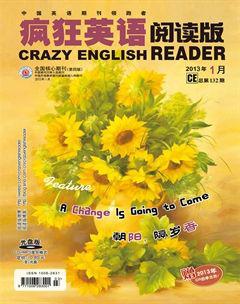感恩节的米饭
Until four years ago, when cancer took my grandma, the Chinese side of my family, my dads side, spent every Thanksgiving at her house. It was always warm, heated by the oven and stove, which grandma usually had running since morning. Our family is large, but the feast she prepared was always much larger. She cooked pies, meats, vegetables, and 1)stuffing, which however delicious, were not my main course. My sister, my cousins and I, we came for grandmas rice and 2)gravy.
And thats what comes to mind when I think about Thanksgiving—not 3)pilgrims or gratitude, or pumpkin pie. My image of Thanksgiving consists of grandmas eleven grandchildren pouring turkey gravy over mountains of steamed white rice.
I believe in rice and gravy because I am rice and gravy. Im half Asian, half Anglo and completely American.
My generation learned in school that culture was something to celebrate and something necessarily foreign. Nobody ever explained to me that culture is not a set of 4)exotic garments and foods, but something everyone has.
四年前,癌症带走了我的祖母;在此之前,我家族中国血统的一边,也就是我爸爸的那边,每年都会在祖母家里过感恩节。那一天,祖母家里总会被炉灶烘得暖洋洋的,因为祖母通常一大早就开了炉火烧煮个不停。我们的家族庞大,但祖母准备的宴席却总是更加盛大。她会烹制各种派、肉类、蔬菜和酿制菜式——这些菜肴都可口美味,但都不是我的主菜。我姐姐、表亲和我都是冲着祖母的米饭和肉汤来的。
那就是当我想起感恩节时脑海中呈现的一切——无关清教徒、感恩或者南瓜派。我的感恩节记忆包含了祖母的11个孙子将火鸡汤浇洒在小山丘似的白米蒸饭时的情景。
我信奉米饭和肉汤,因为我就是米饭和肉汤。我有一半的亚洲血统,一半的英国血统,但完全是个美国人。
我这一代在学校里学到的是,文化是一些值得颂扬且须是外来的事物。从来没有人跟我解释说,文化并不是异国服饰和食品,而是人人都拥有的东西。
So I used to mourn what I saw as the loss of my Chinese heritage. Grandma never taught my dad to speak Cantonese; our holidays were the American ones; and we ate our family dinners with forks.
See, my grandmas generation wasnt taught that diversity was valuable. Her parents came to this country at a time when the central focus of American immigration policy was keeping the Chinese out. 5)Discriminatory laws turned them into illegal immigrants. They used fake papers and adopted a fake family name in order to come here.
Until 1943, the United States would not allow Asians to become naturalized citizens. Many parts of Phoenix, where my grandma grew up and where I was raised, were 6)designated off-limits to Chinese people before World War II. And 7)interracial marriage remained illegal in Arizona until my dad was a teenager. Needless to say, my grandma was encouraged to downplay, not preserve her Chinese culture.
Which is why Ive come to be proud of my mixed identity. My very existence is a mark of progress and a symbol of my country—a collage of people with roots all over the planet, who, though not without strife, form something new and strong together.
The now-common phrase “long time no see” came from the literal translation of a Chinese expression into English. To me, rice and gravy is a similar type of translation. Its a delightful piece of culture that arises only at that point where immigrants braid their past into the American story. And thats what my family celebrates with rice and gravy for Thanksgiving.
因此,过去我会把一些事情看作是中国传统的缺失,而为之悲伤。祖母从没教我爸爸说粤语;我们过的节日都是美国的节日;我们用叉子吃晚饭。
瞧,我祖母那一代并没有人教育他们差异性弥足珍贵。在她父母涉足这个国家的时代,美国移民政策的中心点是排华。歧视性的法律将他们定性为非法移民。为了进入美国,他们使用了虚假文件并且换了虚假的姓氏。
在1943年以前,美国不允许亚洲人加入美国国籍。二战之前,在我祖母及我成长的凤凰城的许多地方,华人都是禁止进入的。在我父亲十多岁前,跨种族婚姻在亚利桑那州依然不合法。所以不用说,人们会劝说我祖母掩饰、舍弃中国传统。
正是出于这些原因,我对自己混血的身份深感自豪。我的存在是这个国家进步的标志与象征——根自全球的各色人种,虽然历经纷争冲突,共同组合出强大的新族群。
如今的流行短语“long time no see”(好久没见)源自一句中文的英语字面直译。对我而言,米饭和肉汤也是一种相似的翻译。这是一种新文化的可喜一面,这种文化唯有当外来移民将他们的过去融入到美国故事才会产生。而那就是我的家族在感恩节用米饭和肉汤来颂扬的东西。


